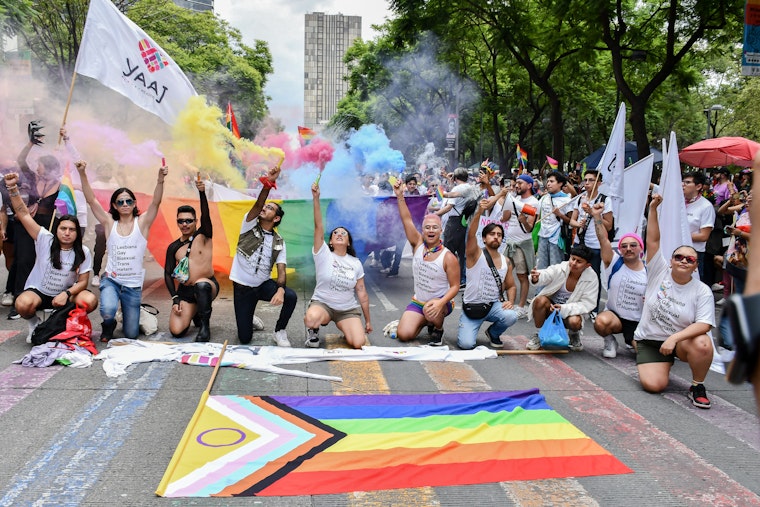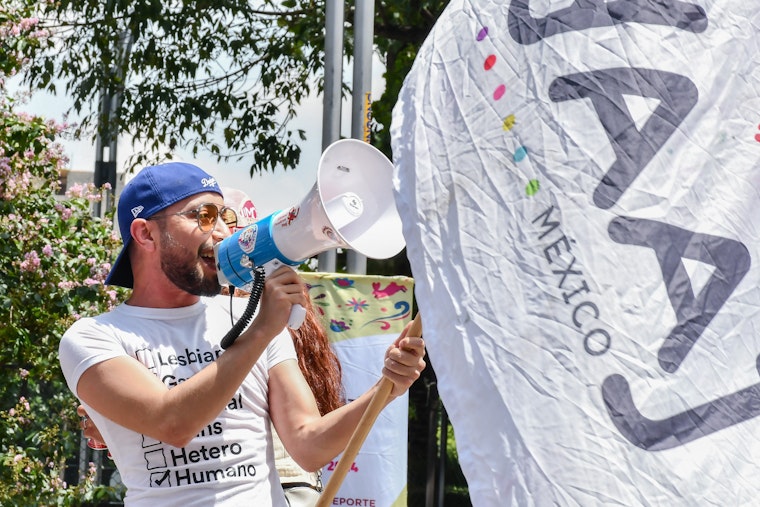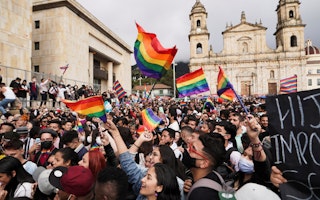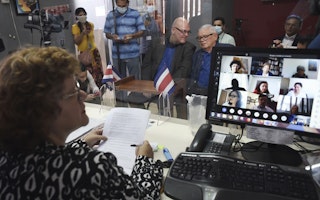Q&A: Advocating for LGBTQI+ Rights in Mexico and Transforming Lives

Yaaj México is an organization that works to enhance the political and civic participation of the LGBTQI+ community in Mexico. We spoke to Yaaj México’s project coordinator Alejandra Paredes and executive director Iván Tagle about how the organization started and how it has grown since.
Iván, how did you get involved with the LGBTQI+ movement?
When I was 15, I fled my home in Mexico City, Mexico, because of the violence and discrimination I faced for being gay. I was subjected to traumatic conversion therapies—something that had become widely accepted across the country—and, ultimately, decided I’d be safer on my own than with my family.
With no money and nowhere to go, I played violin in the subways to get by. The more people I talked to, the more I realized that I wasn’t alone. A significant number of those living on the streets were LGBTQI+ youth.
They became a family, checking in, helping each other, and gathering regularly in Parque México, a public park in the Condesa neighborhood. As the group expanded to nearly 70 people, they gained confidence and momentum.
Though I didn’t yet know the term “human rights,” I was building a movement. I named the group Yaaj, which means “love” in the Mayan language.
When I was a teenager, I couldn’t stop asking myself, “Why is this happening to me?” But as my community grew, I started asking a different question: “What is the purpose of what I’m doing?”
And that’s when I began to see Yaaj’s full potential.
Today, Yaaj México has grown into a key organization defending LGBTQI+ rights in México and sets a powerful example of what can be achieved through resilience, advocacy, and support.
What about you Alejandra, how did you get involved?
My story is similar to Iván’s. As a lesbian growing up in Mérida, Yucatán, I also suffered from harmful conversion therapies. But like many of us at Yaaj México, I managed to transform my pain into purpose, becoming an advocate for those historically marginalized.
Yaaj began as a grassroots operation that prioritized immediate, on-the-ground help. Many LGBTQI+ youth in Mexico endure violence and discrimination on a daily basis. Most of the community-driven ideas Ivan helped create as a teenager remain the foundation of the organization, from community support groups to resources that share important information about human rights and mental and physical health concerns.

Tell us about Yaaj México’s mission.
Yaaj México works for the entire LGBTQI+ community, with a focus on those at higher risk, such as trans and gender non-conforming youth, Indigenous individuals, and youth in forced mobility.
As we expanded our community outreach, it became clear that if Yaaj could align itself with people in positions of power, we would be better equipped to effect real change—such as passing a law to ban conversion therapies.
We identified like-minded leaders at all levels of government to strategize and take action. We created resources to help LGBTQI+ leaders fight discrimination and strengthen their leadership abilities. In turn, we began developing programs to train LGBTQI+ youth to become leaders and activists themselves.
When working with communities and government officials, did you notice any gaps in addressing LGBTQI+ issues?
As Yaaj México’s footprint grew across the country, we recognized a demand for (and lack of) research and reliable data related to the LGBTQI+ community. Over the last several years, our research program has allowed us to build institutional trust and makes us an even more critical part of the decision-making process. Armed with information, we are better equipped to have a seat at the table.
Iván, reflecting on your leadership at the organization, what are some of your proudest achievements?
It has been 15 years since I left my home and began the challenging but rewarding journey that led me to founding Yaaj México. We hope our achievements will serve as an inspiration to other groups worldwide who are trying to change and create an inclusive society.
As we expanded our community outreach, it became clear that if Yaaj could align itself with people in positions of power, we would be better equipped to effect real change—such as passing a law to ban conversion therapies.
This year our leadership program welcomed 100 young people from across Mexico and Latin America to engage with international experts. Additionally, our political training school for lesbian, bisexual, trans, and nonbinary people welcomed participants from over 20 Mexican states. Yaaj also works closely with leaders including Salma Luévano Luna, Mexico’s first trans congresswoman; Citlalli Hernández Mora, Mexico’s Secretary for Women; and Clara Brugada, head of government of Mexico City; among others. We act as consultants for many global organizations, including the United Nations.
Notably, after years of fighting tirelessly against conversion therapies—up to 6 out of every 10 young people who come to Yaaj have survived these practices—last year the Mexican Senate finally passed a law to ban them.
What is next for Yaaj México's work?
At Yaaj México, we are empowering youth and shifting policymaking across Latin America and we are grateful to organizations like the Open Society Foundations for helping to make this possible.
Somewhere in the world right now, a young person from a marginalized population feels alone and without a voice. We share our stories knowing there’s a chance that a person will hear us and discover there is a community that will embrace and fight for them.
As we look back with pride, we are excited to forge ahead—together.
Yaaj México is a grantee of the Open Society Foundations.


